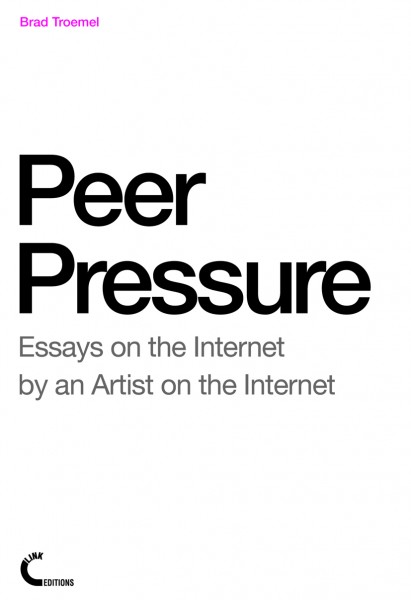William Aspray, Barbara M. Hayes (eds.): Everyday Information: The Evolution of Information Seeking in America (2011)
Filed under book | Tags: · everyday, facebook, information, internet, life, philantrophy, technology, usa, web, youtube

All day, every day, Americans seek information. We research major purchases. We check news and sports. We visit government Web sites for public information and turn to friends for advice about our everyday lives. Although the Internet influences our information-seeking behavior, we gather information from many sources: family and friends, television and radio, books and magazines, experts and community leaders. Patterns of information seeking have evolved throughout American history and are shaped by a number of forces, including war, modern media, the state of the economy, and government regulation. This book examines the evolution of information seeking in nine areas of everyday American life.
Chapters offer an information perspective on car buying, from the days of the Model T to the present; philanthropic and charitable activities; airline travel and the complex layers of information available to passengers; genealogy, from the family Bible to Ancestry.com; sports statistics, as well as fantasy sports leagues and their fans’ obsession with them; the multimedia universe of gourmet cooking; governmental and publicly available information; reading, sharing, and creating comics; and text messaging among young people as a way to exchange information and manage relationships. Taken together, these case studies provide a fascinating window on the importance of information in the past century of American life.
Publisher MIT Press, 2011
ISBN 026251561X, 9780262515610
359 pages
PDF (updated on 2012-9-11)
Comments (2)Micah L. Sifry: WikiLeaks and the Age of Transparency (2011)
Filed under book | Tags: · activism, blogging, democracy, facebook, google, internet, transparency, twitter, web 2.0, wikileaks, youtube

The United States government is diligent—some might say to the point of obsession—in defending its borders against invaders, be they terrorists, natural disasters, or illegal immigrants. Now we are told a small, international band of renegades armed with nothing more than laptops presents the greatest threat to the U.S. regime since the close of the Cold War. WikiLeaks’ release of a massive trove of secret official documents has riled politicians from across the spectrum. The WikiLeaks organizers themselves “are going to have blood on their hands” (U.S. Sen. Joe Lieberman), it is the “9/11 of world diplomacy” (Italian Foreign Minister Franco Frattini), they present “a clear and present danger to the national security of the United States” (U.S. Congressman Peter King). Even noted free-speech advocate Floyd Abrams says that WikiLeaks founder Julian Assange “may yet have much to answer for” and blames him for the certain defeat of federal shield-law legislation protecting journalists. Hyperbole, hysteria? Certainly. We heard much the same in 1971, when Daniel Ellsberg released the Pentagon Papers to the New York Times (ironically, Abrams was the Times’ lawyer in that case).
Welcome to the Age of Transparency. But political analyst and writer Micah Sifry argues that WikiLeaks is not the whole story: it is a symptom, an indicator of an ongoing generational and philosophical struggle between older, closed systems, and the new open culture of the Internet. “What is new,” he writes, “is our ability to connect, individually and together, with greater ease than at any time in human history. As a result, information is flowing more freely into the public arena, powered by seemingly unstoppable networks of people all over the world cooperating to share vital data and prevent its suppression.” Despite Assange’s arrest, the publication of secret documents continues, and websites replicating WikiLeaks’ activities have sprung up in Indonesia, Russia, the European Union, and elsewhere. As Sifry shows, this is part of a larger movement for greater governmental and corporate transparency: “when you combine connectivity with transparency—the ability for more people to see, share and shape what is going on around them—the result is a huge increase in social energy, which is being channeled in all kinds of directions.”
Preface by Andrew Rasiej
Publisher OR Books, 2011
ISBN 1935928317, 9781935928317
211 pages
PDF (EPUB; updated on 2012-7-17)
Comments (3)Brad Troemel: Peer Pressure: Essays on the Internet by an Artist on the Internet (2011)
Filed under book | Tags: · 4chan, anonymous, art, internet, internet art, memes, net art, relational aesthetics, surf club, tumblr, web, youtube

Peer Pressure is a collection of essays previously published online between 2010 and 2011. In the author’s words, “each essay is an impassioned description or prescription to understand the digital space we inhabit differently.” Most of these writings have been highly influential for the (relatively) small community the author addresses, eliciting many heated debates. The texts idealistically address creative platforms, image aggregators, relational practices, internet memes and much more.
Publisher LINK Editions, October 2011
ISBN 9781470915612
138 pages
Licensed under Creative Commons Attribution-NonCommercial-ShareAlike 3.0
PDF (Lulu.com)
Comment (0)
